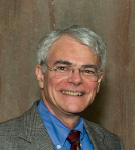From the Deputy Director for Intramural Research
Recognizing Our Senior Faculty

Many of NIH’s senior scientists and scientific support staff have spent most, if not all, of their careers in the intramural research program. Scientists who have received NIH support during the most productive phases of their careers often feel a strong obligation to contribute to the general welfare of this unique organization. NIH, in turn, makes every effort to recognize the lifetime contributions of senior faculty. We may hold symposia to honor the scientific contributions of our most outstanding scientists; grant emeritus status to senior investigators who retire but wish to continue a productive relationship with the NIH; or present individual awards that recognize specific contributions.
I am struck by our senior faculty’s impact on the conduct of science, the mentoring of a new generation of scientists, the management of scientific programs, and their important advisory function. I would like to provide some examples, by no means exclusive, of the enormous role that our senior faculty plays in making the NIH a jewel in the crown of the federal government and to suggest that more recognition of contributions by all dedicated scientific staff would be well-deserved.
Ruth Kirschstein, who died in October 2009 at 83, was a luminary in the field of polio vaccine development and oversight of vaccine production. She was the first woman director of an NIH institute (NIGMS), an NIH deputy director, and acting director of the NIH on two occasions. She was a mentor to many NIH scientists and science administrators, a trusted senior advisor to many NIH directors, and one of the most dedicated public servants in the federal government. To learn more about her amazing contributions, you can download a free copy of Always There: The Remarkable Life of Ruth Lillian Kirschstein, M.D., by Alison F. Davis at http://www.nih.gov/about/kirschstein/index.htm.
I would also like to single out Henry Metzger, a renowned expert on the biology and biochemistry of immunoglobulin E (an antibody that causes acute allergic reactions) and former scientific director of NIAMS. He has been a scientist emeritus and senior advisor to the Board of Scientific Directors for several years. Dr. Metzger continues to play an active role as a senior advisor and chair of NIH’s Dual Use Committee. In his advice and deliberations, Dr. Metzger provides insight, wisdom, a vast store of knowledge, and common sense to help NIH tackle very difficult issues that may have a profound effect on the conduct of science here.
Another exemplary NIH citizen is neuroscientist Richard Nakamura, former deputy director and scientific director of NIMH and now the acting director of the Center for Scientific Review. Dr. Nakamura never shied away from taking on the most difficult problems and always suggested solutions that were both humane and practical. We are grateful for his continuing service to the NIH and for being a trusted advisor to the intramural program.
Finally, I would like to mention Paul Plotz, an internationally recognized rheumatologist and expert on myositis (a rare autoimmune disease that destroys muscles). He has served NIH in many capacities including the establishment of the “Great Teachers” series in the Clinical Center. Dr. Plotz has been an acting deputy director in NIAMS, a senior advisor to my office, and a mentor to many at NIH. Even after his recent retirement and appointment as scientist emeritus, Dr. Plotz has returned to take on some clinical responsibilities in NIAMS.
Obviously, there are many, many more people at NIH who could be mentioned here. I hope this essay will encourage you to say “Thank you” to our senior faculty who have contributed so much to NIH over their years as active scientists and administrators, some of whom continue to make contributions even after their formal retirement.
It is also obvious that there are many senior scientific staff—staff scientists and clinicians, research technicians, and other support personnel in our labs—who go out of their way every day to make NIH a better place in which to work. Some of these support staff may be considering retirement in the near future. The scientific directors have endorsed a program that allows emeritus status for people other than senior investigators, with the possibility of continued involvement at NIH in an advisory and/or mentoring capacity and with access to NIH e-mail and library facilities. Such a program goes a small way toward the recognition due many of our dedicated workforce.
This page was last updated on Monday, May 2, 2022
